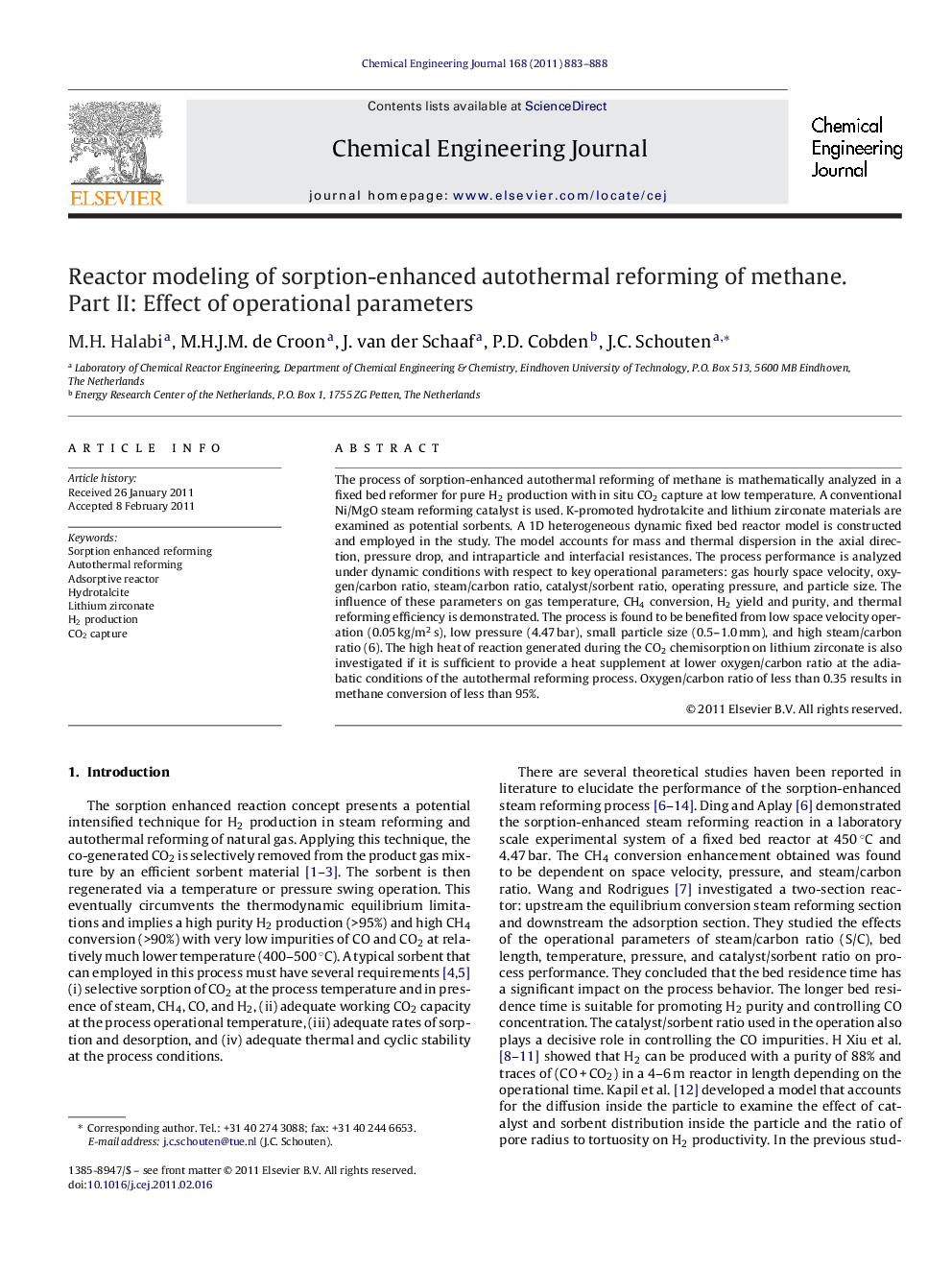| کد مقاله | کد نشریه | سال انتشار | مقاله انگلیسی | نسخه تمام متن |
|---|---|---|---|---|
| 151382 | 456470 | 2011 | 6 صفحه PDF | دانلود رایگان |

The process of sorption-enhanced autothermal reforming of methane is mathematically analyzed in a fixed bed reformer for pure H2 production with in situ CO2 capture at low temperature. A conventional Ni/MgO steam reforming catalyst is used. K-promoted hydrotalcite and lithium zirconate materials are examined as potential sorbents. A 1D heterogeneous dynamic fixed bed reactor model is constructed and employed in the study. The model accounts for mass and thermal dispersion in the axial direction, pressure drop, and intraparticle and interfacial resistances. The process performance is analyzed under dynamic conditions with respect to key operational parameters: gas hourly space velocity, oxygen/carbon ratio, steam/carbon ratio, catalyst/sorbent ratio, operating pressure, and particle size. The influence of these parameters on gas temperature, CH4 conversion, H2 yield and purity, and thermal reforming efficiency is demonstrated. The process is found to be benefited from low space velocity operation (0.05 kg/m2 s), low pressure (4.47 bar), small particle size (0.5–1.0 mm), and high steam/carbon ratio (6). The high heat of reaction generated during the CO2 chemisorption on lithium zirconate is also investigated if it is sufficient to provide a heat supplement at lower oxygen/carbon ratio at the adiabatic conditions of the autothermal reforming process. Oxygen/carbon ratio of less than 0.35 results in methane conversion of less than 95%.
Journal: Chemical Engineering Journal - Volume 168, Issue 2, 1 April 2011, Pages 883–888